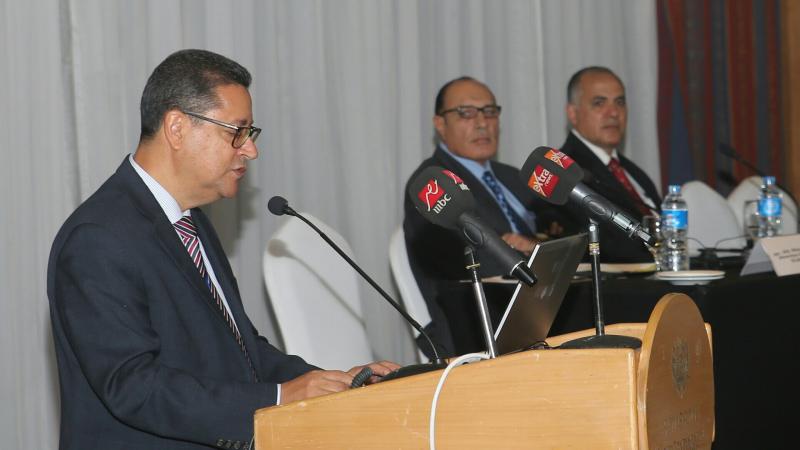Promoting water-saving technologies for the Near East and North Africa

ICARDA recently attended the launch of a new four-year project to streamline the use of affordable water saving technologies in the Near East and North Africa (NENA). The Center will support the Food and Agriculture Organization of the United Nations ( FAO ) and the Swedish International Development Cooperation Agency ( SIDA ) to develop and disseminate new technologies and strategies to help tackle the region’s chronic water scarcity.
The joint initiative - ’Implementing the 2030 agenda for water efficiency/productivity and water sustainability in NENA countries’ - will help member countries implement the 2030 Agenda for water productivity and contribute to the achievement of water access and sanitation for all ( SDG 6).
Speaking at the Initiative’s launch in Cairo, ICARDA’s Director General, Mr. Aly Abousabaa, stressed the importance of research for development to address the region’s water challenges: “ The main aim of this initiative is to uncover, test and recommend a set of options, which target improvements in agricultural water productivity and water use efficiency through the application of innovative science.”
He added: “As a world leader in assessing and improving water productivity in dry areas, ICARDA will deploy its experience in the region to promote sustainable water use technologies in the target sites to enhance water productivity and reduce water loss through unproductive evaporation.”
The NENA region has the lowest per-capita fresh water resource availability among all regions of the world, with serious problems of unsustainable water use manifested through depleted aquifers, seasonally dry rivers, and disappearing lakes and wetlands. In addition, in recent decades the region has been experiencing more frequent and intense droughts as a consequence of climate change.
The NENA initiative will be implemented in eight countries: Algeria, Egypt, Iran, Jordan, Lebanon, Morocco, Palestine and Tunisia.
